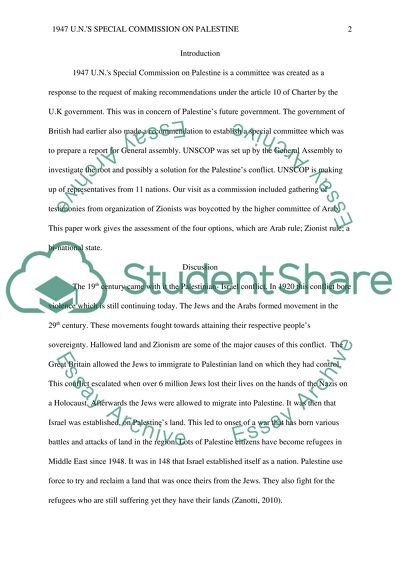Cite this document
(“1947 U.N.'s Special Commission on Palestine Essay”, n.d.)
Retrieved from https://studentshare.org/history/1459497-1947-un-s-special-commission-on-palestine
Retrieved from https://studentshare.org/history/1459497-1947-un-s-special-commission-on-palestine
(1947 U.N.'S Special Commission on Palestine Essay)
https://studentshare.org/history/1459497-1947-un-s-special-commission-on-palestine.
https://studentshare.org/history/1459497-1947-un-s-special-commission-on-palestine.
“1947 U.N.'S Special Commission on Palestine Essay”, n.d. https://studentshare.org/history/1459497-1947-un-s-special-commission-on-palestine.


